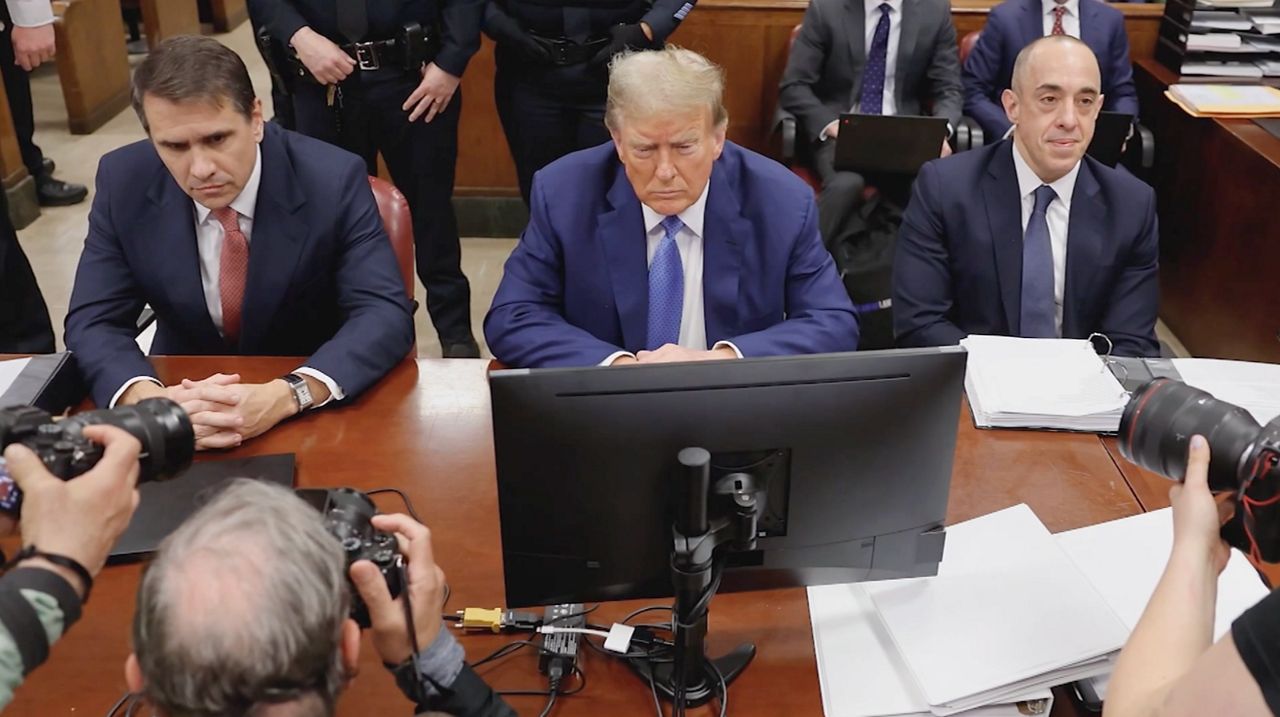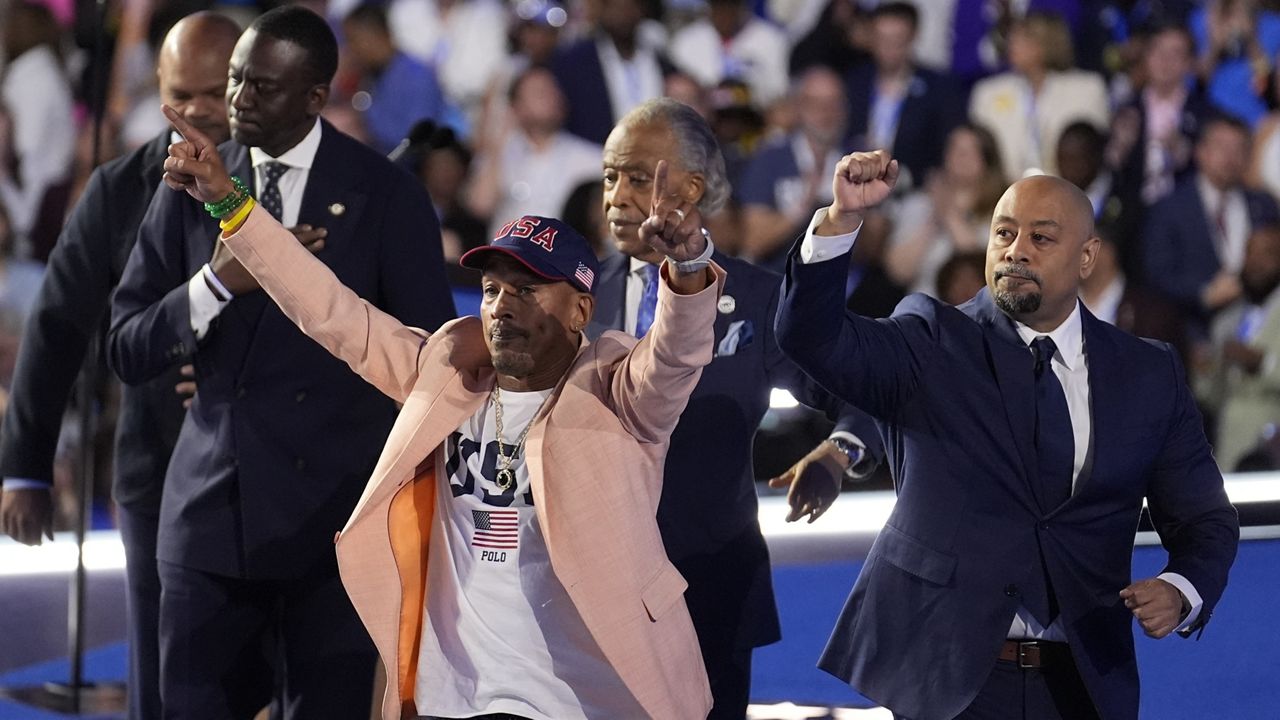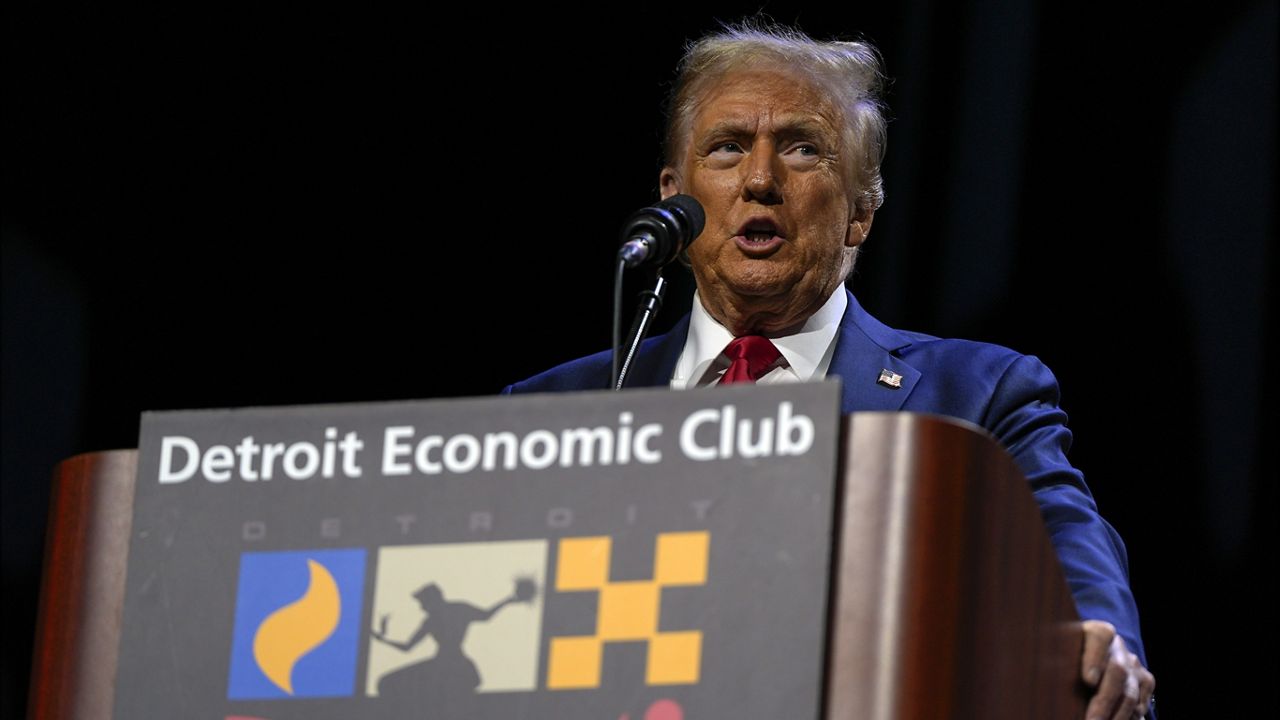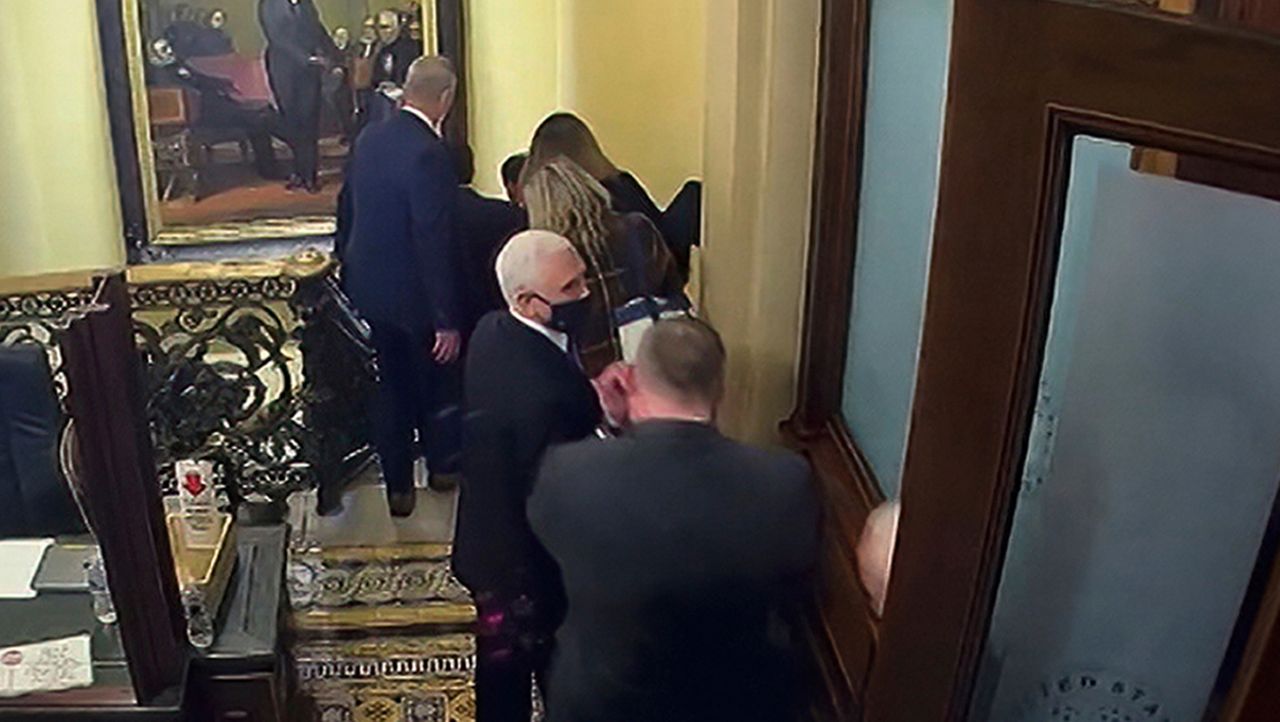The hush money case against former President Donald Trump will begin on April 15 with jury selection, New York Judge Juan M. Merchan said Monday.
The case will be the first criminal proceeding against the former president and current presumptive Republican nominee to go to trial. It will also be the first time in U.S. history a former president will be a defendant in a criminal trial and face a jury of his peers.
Merchan had bristled at what he suggested were baseless defense claims of “prosecutorial misconduct,” appearing unpersuaded by Trump team arguments that prosecutors had until recently concealed tens of thousands of pages of records from a previous federal investigation.
In a press conference at one of his office buildings on Wall Street after the hearing and a separate one in his civil business fraud case, Trump railed against Merchan and other judges and prosecutors involved in his civil and criminal cases. He said there shouldn’t be a trial, but said he “would have no problem testifying.”
He also baselessly reiterated his oft-repeated, baseless claim that the prosecution — being handled by a county-level district attorney — was being orchestrated by President Joe Biden and the federal Department of Justice.
“I don't know how you can have a trial that's going on right in the middle of an election, not fair, not fair. It's not fair at all,” Trump said, appearing alongside his attorneys. “If you read legal scholars all over the world, they say this [district attorney’s] case is a hoax. And it’s something that shouldn’t have — it’s not even a crime.”
“We have violent criminals that are murdering people, killing people. We have drug dealers all over the place, and they go free and they can do whatever they want, but they go after Trump with this not even a crime,” he later added, referring to himself in the third person.
Biden's campaign, meanwhile, responded to Trump's press conference by calling the ex-president "weak and desperate – both as a man and a candidate for President."
"His campaign can’t raise money, he is uninterested in campaigning outside his country club, and every time he opens his mouth, he pushes moderate and suburban voters away with his dangerous agenda," James Singer, a spokesperson for the incumbent president's reelection campaign, said in a statement. "America deserves better than a feeble, confused, and tired Donald Trump."
The presumptive Republican presidential nominee has pleaded not guilty in the New York criminal case to 34 counts of falsifying business records and denied wrongdoing. He said on Monday he believed a conviction before the election “could also make me popular because the people know it’s a scam.” Notably, as he faced primary challengers last year, his polling numbers among Republicans increased with each of his four criminal indictments, but polling of the general electorate suggests a criminal conviction could hurt him in November.
He also argued there shouldn’t be a trial and said that his legal team would continue to fight to push back the April 15 start date, when jury selection would begin.
“We very much believe that starting this trial in April, or even starting this trial at any point before, before the election, is completely unfair to President Trump. It's completely unfair to the American people who are evaluating who they want to be the next president,” defense attorney Todd Blanche said at the press conference. “We certainly feel as if the date that Judge Merchan held today, April 15, is not a day we should go to trial and we're going to continue to fight.”
The case, which centers around alleged hush money payments he made during the 2016 presidential campaign to bury stories about an alleged extramarital affair with an adult film star years prior, was put off until at least mid-April because of the recent delivery of records from a previous federal investigation into Trump’s former fixer Michael Cohen.
Cohen, who has turned on his old boss, is expected to be one of prosecutors’ key witnesses in the case.
Trump's lawyers argued that the delayed disclosures warrant dismissing the case or at least pushing it off three months, pointing to the tens of thousands of pages of documents turned over by the U.S. Attorney’s Office for the Southern District of New York. Prosecutors said in court on Monday there's around 300 documents that were passed along by federal prosecutors with little new material in the trove and no reason for further delay.
Merchan summoned both sides to court Monday to explain what happened, so he could evaluate whether to fault or penalize anyone and decide on the next steps.
The district attorney's office says there’s little new material in the trove and no reason for further delay, with prosecutor Matthew Colangelo saying in court Monday that the number of relevant, usable, new documents “is quite small" — around 300 records or fewer.
“We very much disagree,” countered Trump’s defense lawyer Blanche, who said the number totaled in the thousands and continues to grow. Trump's lawyers argue that the delayed disclosures warrant dismissing the case or at least pushing it off three months.
“We’re not doing our jobs if we don’t independently review the materials,” Blanche said. "Every document is important.”
The case centers on allegations that Trump falsely logged $130,000 in payments as legal fees in his company's books “to disguise his and others’ criminal conduct,” as Manhattan District Attorney Alvin Bragg's deputies put it in a court document.
The money went to Trump's then-personal attorney Cohen, but prosecutors say it wasn't for actual legal work. Rather, they say, Cohen was just recouping money he'd paid porn actor Stormy Daniels on Trump's behalf, so she wouldn't publicize her claim of a sexual encounter with him years earlier.
Trump's lawyers say the payments to Cohen were legitimate legal expenses, not cover-up checks.
Cohen pleaded guilty in 2018 to federal charges, including campaign finance violations related to the Daniels payoff. He said Trump directed him to arrange it, and federal prosecutors indicated they believed him, but they never charged Trump with any crime related to the matter.
Trump’s lawyers have said Bragg's office, in June, gave them a smidgen of materials from the federal investigation into Cohen. Then they got over 100,000 pages more after subpoenaing federal prosecutors themselves in January. The defense argues that prosecutors should have pursued all the records but instead stuck their heads in the sand, hoping to keep information from Trump.
The material hasn’t been made public. But Trump's lawyers said in a court filing that some of it is “exculpatory and favorable to the defense," adding that there's information that would have aided their own investigation and consequential legal filings earlier in the case.
Merchan, who earlier this month postponed the trial until at least mid-April, told defense lawyers that they should have acted much sooner if they believed they didn’t have all the records they felt they were entitled to.
Trump “will not suffer any prejudice” from the recent provision of material and the prosecutors who turned it over were not at fault, Merchan said.
Bragg's deputies have insisted they “engaged in good-faith and diligent efforts to obtain relevant information" from the federal probe. They argued in court filings that Trump's lawyers should have spoken up earlier if they believed those efforts were lacking.
Prosecutors maintain that, in any event, the vast majority of what ultimately came is irrelevant, duplicative or backs up existing evidence about Cohen's well-known federal conviction. They acknowledged in a court filing that there was some relevant new material, including 172 pages of notes recording Cohen’s meetings with the office of former special counsel Robert Mueller, who investigated Russia’s 2016 election interference.
Prosecutors argued that their adversaries have enough time to work with the relevant material before a mid-April trial date and are just raising a “red herring.”
The case is one of four criminal proceedings against the former president and current presumptive Republican nominee. Trump faces two cases over his alleged efforts to overturn the 2020 presidential election — one in federal court in Washington and one in Fulton County, Georgia — and one in federal court in Florida accusing him of mishandling classified documents at his Mar-a-Lago estate and hampering the federal government's efforts to retrieve them.
Trump's lawyers also have sought to delay the trial until after the Supreme Court rules on his claims of presidential immunity in his election interference case in Washington. The high court is set to hear arguments on April 25.
Spectrum News' Ayanna Harry contributed to this report.









